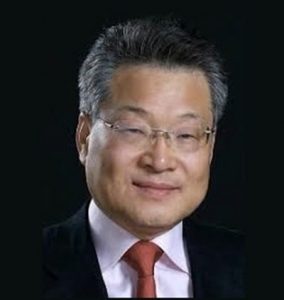But What Really Comes Next? An Asia Society Mission.
The phrase “Le roi est mort, vive le roi!” (The king is dead, long live the king!) was first used in 1422 when King Charles VII of France succeeded his father, Charles VI. It was meant to signal continuity – the old king is dead, but the new king will reign with the same rules.
After World War II and the Korean War, the United States established a world order under its might and leadership. It has gone by many names, such as “Pax Americana,” “Liberal World Order,” “A Rules-based Global System,” and others.
And no matter which U.S. president was elected, the basic system remained in place – Eisenhower is gone, Kennedy is here! Carter is gone, Reagan is here! Clinton is gone, Bush is here!, Bush is gone, Obama is here!, etc. Each ran his administration with the U.S.-led world order in mind, convinced that Pax Americana was good not only for the other countries of the world, but for the U.S. as well – it was “American Exceptionalism”, “enlightened self-interest”, “America the indispensable country.”
It is an axiom that societies, economies, and indeed Earth’s nations thrive in a relatively stable, dependable order. Unpredictability seeds chaos. Despite some missteps, the U.S. tried to play the role of balancer and stabilizer. Relatively free trade was a major tool. The world was in a state of moderate equilibrium. Korea prospered under seven decades of predictable trade rules and a U.S. security guarantee.
But pressures were building in U.S. domestic politics; some began questioning whether the Pax Americana was worth the perceived cost that many average Americans felt they were paying for it. President Trump rode this skepticism to the election with the slogan “America First,” defining American self-interest much more narrowly than his predecessors.
However, many Koreans may be upset or unnerved that the Pax Americana King is dying, and America First might be its assassin; it is a reality. The shape of America First and its effect on the global order are still being determined. It will play out over the next several years. But it certainly looks like the old King will be gone.
The key question is how and when Korea, East Asia, and the world will again achieve a stable, dependable order conducive to the predictability that underpins real prosperity. Korea, unlike at the dawn of Pax Americana in the 1940/50s, is no longer a supplicant, dependent on big brother USA. To be sure, there is a power imbalance.
But Seoul is now one of the world’s top ten economies and a large investor in the United States. Its food, music, and culture are known around the world. Its manufacturing has challenged Japan and, in several instances, bested it. High schools throughout the US, UK, Europe, Australia, India, the Philippines, and many other countries now have “Korea Clubs,” reflecting young people’s fascination with things Korean.
Korea has agency in creating what comes next. President Lee’s emphasis on pragmatism in charting Korea’s course sounds right. It would be good if Korea’s progressive and conservative domestic political players could engage in thoughtful dialogue to help find the best path forward to a new order that doesn’t carry the threat of flipping 180 degrees every five years when a new president is elected.
The Asia Society, the venerable institution with offices and chapters throughout the United States, Asia, and Europe, is reopening its closed chapter in Korea. This was designated as a top priority of Asia Society President Kang Kyung-hwa before she left to become the Korean ambassador to the United States. She asked me to be a temporary point man in getting Asia Society-Korea back up and running and helping build a broad base of financial and community support. With the help of an excellent board of directors, it is being done.
One of the key tasks of the newly rejuvenated Asia Society-Korea will be to offer the considerable synergy that Asia Society’s strong international network can bring to Korea-based thinkers and doers from the progressive side, the middle, and the conservative side as they work to find the best path for Korea to take as the regional and global order searches for a new King.
Look for Asia Society-Korea to do its best.
 By Spencer H. Kim
By Spencer H. Kim
The author is CEO of CBOL Corp., a California aerospace company. He is a co-founder of the Pacific Century Institute and a member of the US Council on Foreign Relations. He was appointed by President Bush to represent the US on the APEC Business Advisory Council 2006-08. He was a resident fellow at Harvard’s Ash Center for Democratic Governance and Innovation 2012-13.



